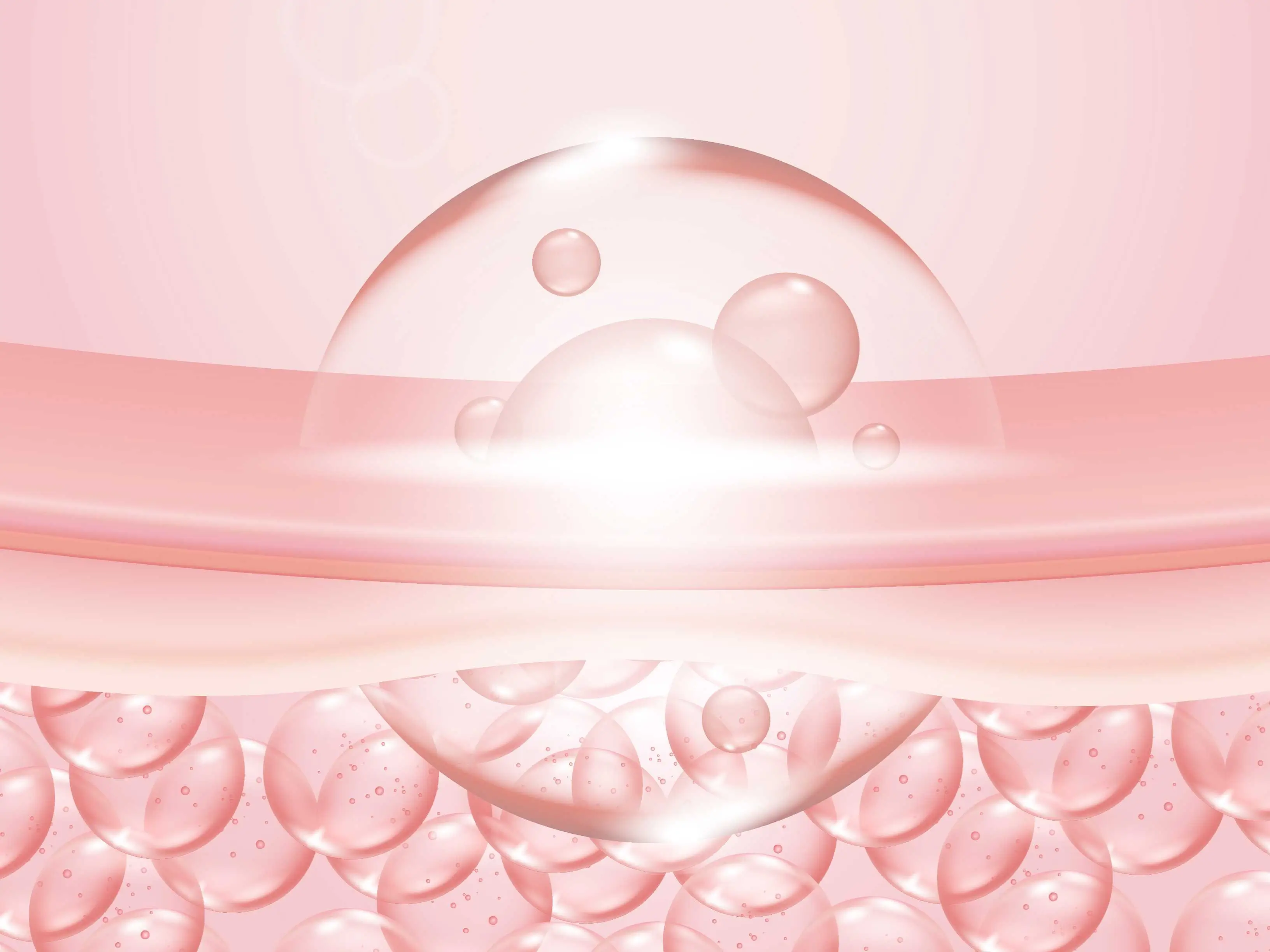The Secret to Radiant Skin? It Starts from Within—With Collagen
May 27 2025


Imagine your body as a beautifully intricate web—collagen is the thread that holds it all together. From the youthful bounce of your skin to the flexibility in your joints, this protein isn’t just about looking good; it’s about how your body heals, functions, and thrives. Collagen makes up nearly 30% of the body’s total protein. [1] It’s foundational to the skin, bones, muscles, tendons, hair, nails, and even the gut lining. But as early as your mid-20s, collagen production begins to slow down. The signs? Fine lines, dullness, joint stiffness, slower recovery, and even digestive issues.
Whether you're seeking facial rejuvenation, looking to elevate your wellness routine, or simply curious about what science-backed skin treatments can do for long-term glow, you’re in the right place. Let’s explore how collagen—and the right kind of support—can transform not just your skin, but your health.
IV Collagen For Skin Treatments
While collagen powders, capsules, and collagen-rich foods are common additions to wellness routines, their effectiveness can be limited. A study published in the American Journal of Physiology – Gastrointestinal and Liver Physiology highlights that oral collagen is broken down by digestive enzymes and absorbed inconsistently in the gut. In contrast, intravenous (IV) infusion bypasses digestion entirely, ensuring that nutrients are rapidly delivered into the bloodstream with high bioavailability. [2]
This makes IV delivery a standout in skin therapy, especially for individuals seeking long-term improvements in skin rejuvenation and facial rejuvenation Unlike topical solutions or supplements, IV therapy supports deep cellular regeneration, helping the body restore collagen where it’s needed most.
Why Collagen Matters More Than You Think
Collagen is the body’s primary structural protein, accounting for nearly 30% of total protein content. It supports everything from skin elasticity to joint function and digestive health. But starting in your mid-20s, collagen production naturally declines—by about 1–1.5% each year [3]. Over time, this gradual loss can impact both appearance and well-being.
Here’s how reduced collagen levels affect the body:
Fine lines and wrinkles
As collagen decreases, the skin loses its firmness and elasticity. This is one of the earliest signs that the body’s natural skin rejuvenation capacity is slowing, often prompting more targeted skin care treatments or facial rejuvenation strategies.
Joint stiffness or discomfort
Collagen is essential for maintaining the cushioning of cartilage in joints. Its decline can lead to stiffness, reduced mobility, and a greater reliance on treatment for skin care and joint health from within.
Slower wound healing and recovery
Collagen is a key player in tissue regeneration. Reduced levels can make recovery from injuries or surgeries slower, increasing the need for therapies that support collagen induction at a cellular level.
Weakened nails and hair loss
Due to reduced protein support in keratin-based structures, nails may become brittle, and hair more prone to thinning or falling—a common concern addressed through regenerative skin therapy.
Digestive issues and gut sensitivity
Collagen helps maintain the integrity of the gut lining. When levels drop, it can contribute to bloating, food sensitivities, and poor nutrient absorption.
Understanding collagen’s role helps reframe it not just as a beauty concern, but as a foundation for healthy aging. Supporting natural collagen synthesis is central to effective skin treatments, internal healing, and overall vitality.
Benefits of Replenishing Collagen Through IV Drip Therapy
While oral collagen supplementation has been shown to support various aspects of health, IV drip therapy offers a more direct and efficient delivery of nutrients that promote collagen induction and regeneration. Here are the key benefits supported by research:
Healthier, Glowing Skin
IV nutrient therapy can enhance skin quality by promoting hydration, elasticity, and dermal density—key factors in skin rejuvenation.
- A double-blind, placebo-controlled study by Proksch et al. (2014) found that oral collagen peptides increased skin elasticity by up to 30% and significantly improved skin hydration after 8 weeks of use in women aged 35–55. [4]
- While the study focuses on oral intake, IV therapy enhances bioavailability and can achieve faster and potentially more effective skin care treatment results when paired with vitamin C and antioxidants known to aid collagen induction.
Stronger Hair and Nails
Consistent collagen support is linked to improved hair growth and reduced nail brittleness, both of which benefit from internal nutrient optimization.
- A study by Matsumoto et al. (2019) showed that collagen peptides significantly improved hair strength and reduced nail breakage in adult women over a 6-month period. [5]
Joint and Bone Support
Collagen plays a key role in maintaining joint cartilage and bone matrix stability—essential for mobility and pain reduction.
- In a clinical trial, Bello and Oesser (2006) found that participants who received 10g of collagen hydrolysate daily for 24 weeks experienced a significant reduction in joint pain and improved mobility, especially among those with activity-related joint discomfort. [6]
- IV administration may enhance outcomes by ensuring nutrients reach joint tissues more efficiently, improving the efficacy of skin treatments that extend to musculoskeletal support.
Better Gut Health
Collagen supports the structure of the intestinal lining and has shown promise in managing digestive issues like leaky gut and IBS.
- Research by Chen et al. (2017) demonstrated that collagen peptides help improve gut barrier function, enhance tight junction protein expression, and reduce inflammation—particularly beneficial in gut permeability disorders. [7]
Faster Recovery and Healing
Collagen is integral to wound healing, tissue regeneration, and post-surgical recovery.
- A foundational study by Postlethwaite et al. (1993) emphasized collagen’s role in stimulating fibroblast proliferation and enhancing wound closure, highlighting its necessity in the healing cascade. [8]
- IV nutrient therapy can enhance these processes by delivering synergistic co-factors (like zinc, vitamin C, and glutathione) to support treatment for skin care and tissue repair.
How IV Collagen Therapy Is Administered
IV collagen therapy is a straightforward, minimally invasive skin therapy designed to enhance the body’s natural collagen induction process. A small, sterile needle is gently inserted into a vein—usually in the forearm or hand—allowing a specially formulated nutrient infusion to be delivered directly into the bloodstream. Each session typically lasts between 30 to 45 minutes and is generally well-tolerated, offering a quiet opportunity for rest or reflection.
To optimize the effects of this treatment for skincare, the IV drip is often enriched with powerful co-factors like vitamin C, essential for collagen synthesis, and glutathione, which protects skin cells from oxidative stress and promotes clarity.
A typical skin care treatment protocol involves one session per week for six to twelve weeks, followed by monthly maintenance sessions to sustain results. This structured approach helps support long-term skin rejuvenation, improve elasticity, and deliver consistent nourishment for healthier skin from within.
Is IV Collagen Therapy Safe?
Yes, IV collagen-supportive therapy is generally safe when administered under proper medical supervision. Most individuals tolerate it well, with minimal risk. Here’s what to know:
- Well-tolerated by most people, especially when dosage and ingredients are tailored to individual needs.
- Mild side effects may include slight pain, redness, or swelling at the injection site.
- Rare allergic reactions may occur—primarily in individuals allergic to fish, bovine, or other animal-derived collagen sources. [9]
Always consult a qualified healthcare provider before starting any skin therapy or treatment for skin care, especially if you have known allergies or underlying health conditions.
Conclusion: Supporting Your Body Where It Matters Most
Collagen isn’t just a skin-deep protein—it’s a structural cornerstone of overall health. As natural collagen production declines by 1–1.5% each year after our mid-20s, the effects ripple across the body: from fine lines and joint discomfort to slower healing and weakened gut integrity. While supplements and topicals can help to an extent, IV therapy offers a more direct and efficient route—bypassing digestion and delivering key nutrients straight to the bloodstream for maximum impact.
At ALIV, our skin rejuvenation IV therapy is carefully designed to support your body’s natural collagen induction process. We combine collagen-supportive amino acids with essential co-factors like Vitamin C and Glutathione—both proven to enhance absorption, promote cellular repair, and boost radiance from within. Whether you’re looking for long-term skin care treatment, improved recovery, or holistic skin therapy, our protocols are built to meet your body where it needs support the most—restoring balance, resilience, and glow from the inside out.
Resources
[1] Collagen Protein: The Complete Amino Acid Source? Alex Alikiotis. https://medshun.com/article/does-collagen-protein-have-all-amino-acids
[2] Identification of food-derived collagen peptides in human blood after oral ingestion of gelatin hydrolysates. J Agric Food Chem. 2005 Aug 10;53(16):6531-6. doi: 10.1021/jf050206p. https://pubmed.ncbi.nlm.nih.gov/16076145/
[3] Skin collagen through the lifestages: importance for skin health and beauty. David M. Reilly, Jennifer Lozano. https://www.oaepublish.com/articles/2347-9264.2020.153
[4] Oral supplementation of specific collagen peptides has beneficial effects on human skin physiology: a double-blind, placebo-controlled study. E Proksch 1, D Segger, J Degwert, M Schunck, V Zague, S Oesser. https://pubmed.ncbi.nlm.nih.gov/23949208/
[5] Polycaprolactone-based dermal filler complications: A retrospective study of 1111 treatments. Shang-Li Lin 1, Marie-Odile Christen 2. https://pubmed.ncbi.nlm.nih.gov/32485052/
[6] Collagen hydrolysate for the treatment of osteoarthritis and other joint disorders: a review of the literature. Alfonso E Bello 1, Steffen Oesser. https://pubmed.ncbi.nlm.nih.gov/17076983/
[7] Collagen peptides ameliorate intestinal epithelial barrier dysfunction in immunostimulatory Caco-2 cell monolayers via enhancing tight junctions. Qianru Chen, Oliver Chen, Isabela M. Martins,c Hu Hou, Xue Zhao, Jeffrey. Blumberg and Bafang Li*. https://pubs.rsc.org/en/Content/ArticleLanding/2017/FO/C6FO01347C
[8] Detailed evaluation of 2959 allogeneic and xenogeneic dense connective tissue grafts (fascia lata, pericardium, and dura mater) used in the course of 20 years for duraplasty in neurosurgery. J Parízek, P Mĕricka, Z Husek, P Suba, J Spacek, S Nĕmecek, J Nĕmecková, M Sercl, P Eliás. https://pubmed.ncbi.nlm.nih.gov/9351987/
[9] The Effects of Dietary Supplementation with Collagen and Vitamin C and Their Combination with Hyaluronic Acid on Skin Density, Texture and Other Parameters: A Randomised, Double-Blind, Placebo-Controlled Trial by Katja Žmitek, Janko Žmitek, Janko Žmitek, Hristo Hristov, Mirjam, Rogl Butina, Petra Keršmanc, Tina Pogačnik. https://www.mdpi.com/2072-6643/16/12/1908